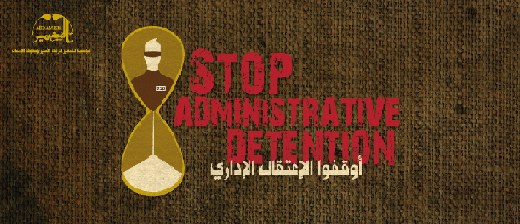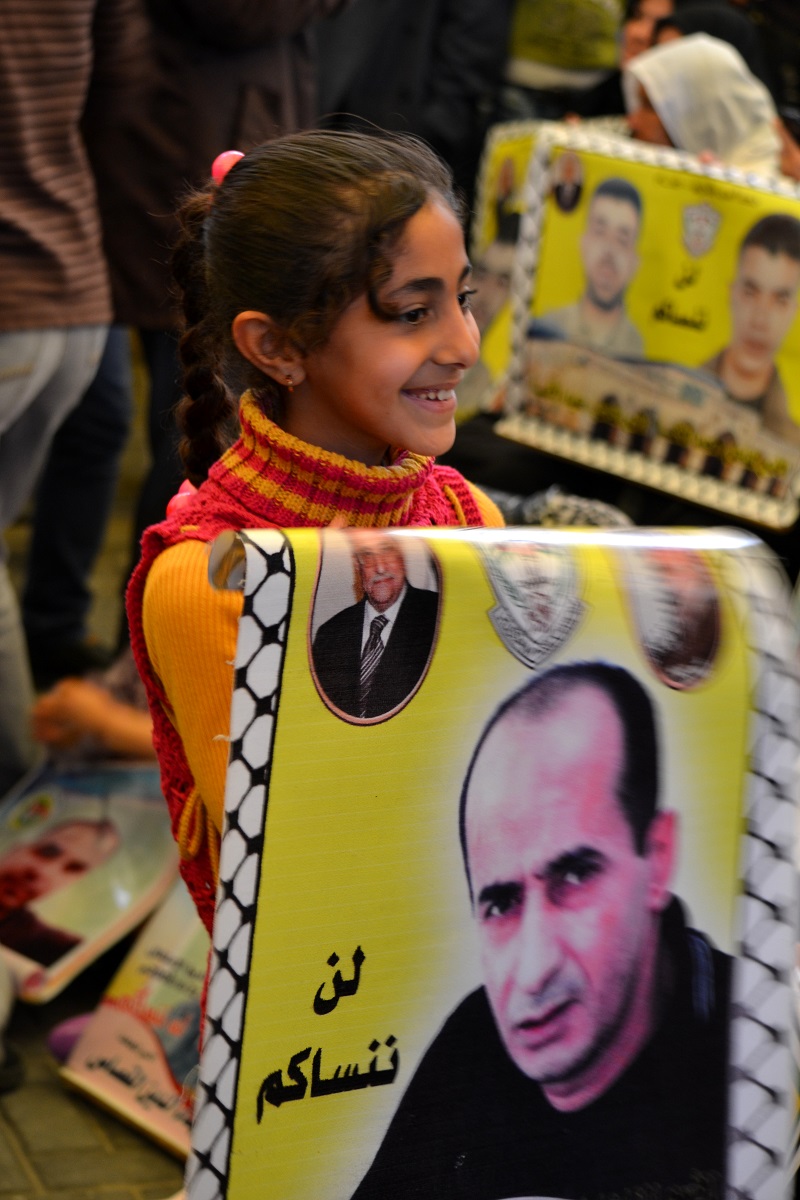Tag: Administrative Detention
-
Update on Hunger Strikes: Administrative Detainees put in Solitary Confinement, Denied Salt Supplements
7th May 2014 | Addameer Prisoner Support and Human Rights Association | Ramallah, Occupied Palestine The latest wave of mass hunger strikes continue for the 14th day as Palestinian prisoners demand the end of the policy of administrative detention. Administrative detention is a procedure in which Palestinians are arbitrarily arrested and detained without charge or trial based…
-
Mass Hunger-Strike Launched by Palestinian ‘Administrative Detainees’
24th April 2014 | Addameer Prisoner Support and Human Rights Association | Ramallah, Occupied Palestine Addameer Prisoner Support and Human Rights Association can confirm the launch of a mass open-ended hunger strike involving over 100 Palestinian political detainees. All those involved are being held under administrative detention, which is a procedure whereby detainees are held without charge…
-
PHOTOS: Gaza calls for the rights of Palestinian prisoners and the freedom of Ahmad Sa’adat
27th March 2014 | International Solidarity Movement, Rosa Schiano | Gaza, Occupied Palestine On Monday, at the International Committee of the Red Cross in Gaza City, the weekly rally in solidarity with Palestinian prisoners in Israeli jails saw the participation of many prisoners’ families, released prisoners, and international and Palestinian activists. Each week, the rally focuses on certain topics, ranging…


